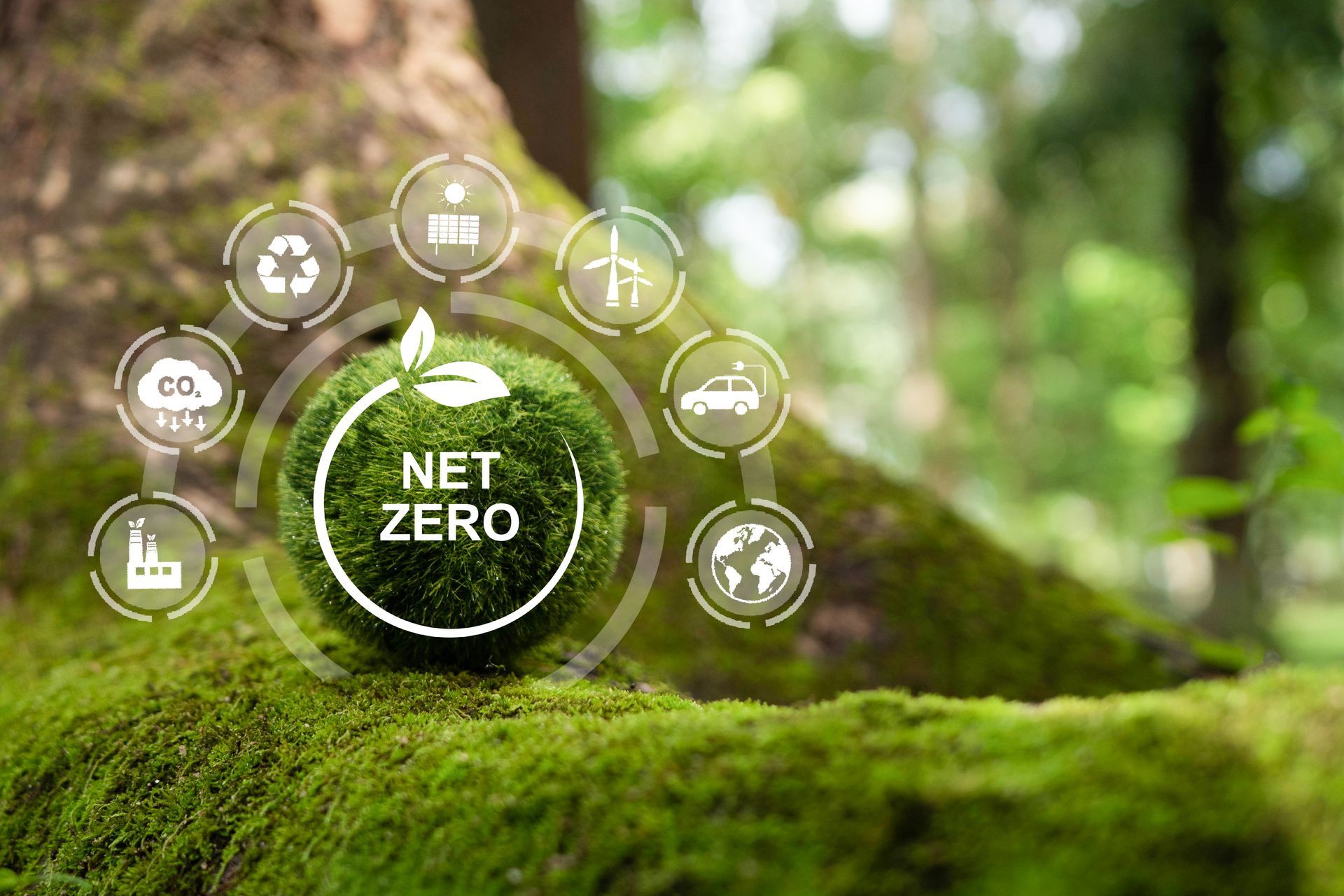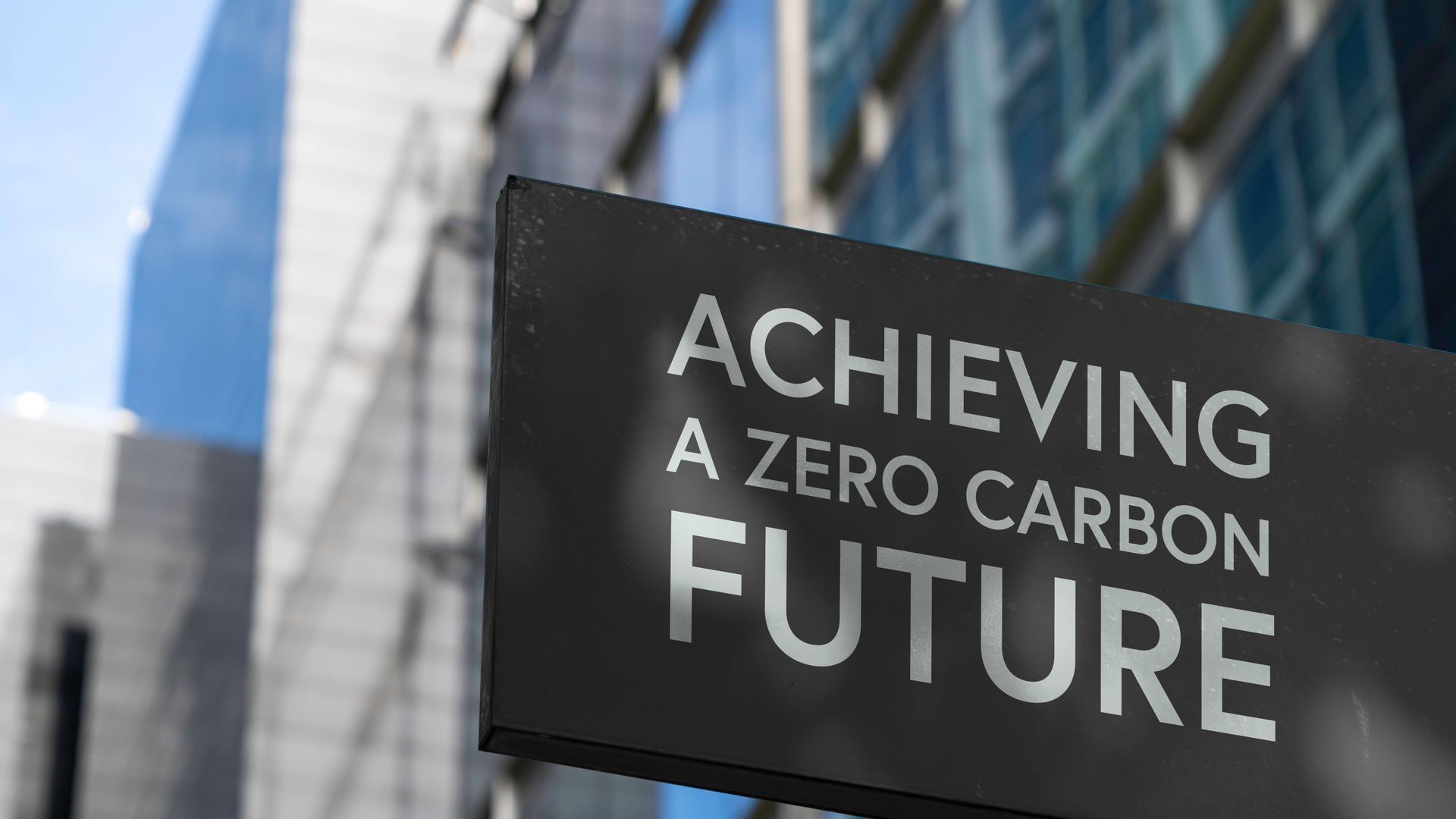Net Zero Scotland: A Path Towards Carbon Neutrality

Welcome to our informative article on Net Zero Scotland - a defining initiative in the pursuit of carbon neutrality. In this piece, join us as we delve into the details of Scotland's ambitious targets for a cleaner greener country and explore its transformative potential in shaping a more sustainable and environmentally conscious Scotland.
Definition and Goals of Net Zero Scotland
Net Zero Scotland is an ambitious goal to drastically reduce greenhouse gas emissions by 2045, striving for virtually zero emissions or offsetting them completely. This target is driven by the urgent need to combat climate change and create a cleaner, healthier environment for future generations. Scotland aims to achieve a net zero economy by balancing any remaining emissions with carbon removal, ultimately achieving overall neutrality on greenhouse gases.
The importance of reaching carbon neutrality cannot be overstated. With rising global temperatures and increased occurrence of extreme weather events, it is crucial to mitigate the impact of human activities on our planet. By reducing greenhouse gas emissions to net zero, we can stabilize the global climate further, protect ecosystems, and safeguard vulnerable communities from the devastating effects of climate change. Carbon neutrality is vital for building a sustainable future that maintains a high quality of life while respecting the Earth's natural boundaries.
The Net Zero Scotland initiative is a comprehensive plan that encompasses all sectors of the Scottish economy. It involves a multidimensional approach, including transitioning to renewable energy sources, improving energy efficiency, promoting sustainable transportation systems, enhancing waste management practices, and embracing nature-based solutions. By targeting emissions reduction across diverse sectors, Scotland aims to create a resilient, inclusive, and greener society, fostering innovation and sustainable economic growth.
Carbon Neutral Goals

Reducing greenhouse gas emissions to net zero
One of the key objectives of the Net Zero Scotland initiative is to significantly reduce greenhouse gas emissions to achieve a state of carbon neutrality. Carbon neutrality refers to balancing the amount of carbon dioxide emitted into the land and atmosphere with the amount removed or offset, effectively resulting in no net increase in emissions.
Strategies for a low-carbon future
To achieve carbon neutrality, Scotland is implementing various strategies for a low-carbon future. These strategies include transitioning from fossil fuels to renewable energy sources, improving energy efficiency across sectors, and promoting sustainable practices in industries and households.
Promoting sustainable practices across sectors
Our commitment to the climate emergency emphasises the importance of promoting sustainable practices across sectors. This involves encouraging industries, businesses, and individuals to adopt eco-friendly solutions and practices that minimize carbon emissions, such as reducing waste, increasing recycling efforts, and implementing energy-efficient technologies.
Renewable energy is key to Net Zero Scotland

Scotland is committed to achieving Net Zero emissions by 2045. To reach this goal, the country needs to increase its production and utilisation of renewable energy sources.
- Renewable energy: is abundant and has unlimited potential. It can help to reduce greenhouse gas emissions and combat climate change. Some of the most promising renewable energy sources include wind power, solar energy, and hydroelectricity.
- Wind power: is one of the fastest-growing sources of renewable energy in Scotland. The country's windy landscapes make it an ideal environment for wind turbines. Harnessing the power of the wind not only reduces carbon emissions, but it also creates jobs and stimulates economic growth.
- Solar energy: is another vital component of Scotland's renewable energy strategy. The sun's rays can be used to generate electricity, and with advancements in solar technology, more and more households and businesses are transitioning to rooftop solar panels.
- Hydroelectricity: is already a well-established renewable energy source in Scotland. The country's rivers and reservoirs provide an excellent opportunity to generate clean energy while minimizing environmental impact.
While there are challenges to using renewable energy, the benefits are clear. Renewable energy can help to reduce greenhouse gas emissions, diversify energy sources, reduce dependence on fossil fuels, and enhance energy security. Furthermore, the development of renewable energy projects creates job opportunities and stimulates local economies.
Scotland is taking a critical step towards a sustainable future by prioritising and investing in the development and utilisation of renewable energy sources.
Energy Efficiency: Improving Scotland's Sustainability

Enhancing Energy Efficiency Across Buildings, Transportation, and Industry
Improving energy efficiency is a pivotal strategy in attaining our targets. By focusing on energy efficiency in buildings, transportation, and industry, Scotland can make substantial progress towards its sustainability goals while reducing its carbon footprint.
- Enhancing Buildings: Retrofitting buildings, implementing insulation, and adopting energy-efficient appliances are key steps towards improving energy efficiency. These measures ensure that energy consumption is minimized while maintaining comfortable and sustainable living and working environments.
- Optimising Transportation: Promoting public transportation, encouraging the use of electric vehicles, and investing in infrastructure for cycling and walking contribute to more energy-efficient transportation systems. These initiatives reduce emissions and enhance Scotland's sustainable mobility landscape.
- Industrial Advancements: Industries can achieve significant energy savings by optimising production processes, adopting energy-efficient technologies, and embracing smart grid systems. These measures enhance efficiency, reduce waste, and pave the way for sustainable industrial practices
Implementing Smart Solutions and Energy-Saving Technologies

The implementation of energy-saving technologies and smart solutions plays a crucial role in curbing energy consumption and lowering greenhouse gas emissions. Scotland can achieve this through:
- Smart Metering: By employing smart meters, Scotland can effectively monitor and manage energy usage. This empowers individuals and businesses to understand their consumption patterns, make informed decisions, and actively reduce wastage.
- Harnessing Renewable Energy: Embracing renewable energy systems like solar panels and wind turbines promotes energy independence and sustainability. By generating clean energy, Scotland can reduce its reliance on traditional power sources and contribute to a greener future.
Fostering Sustainable Practices and Behaviours
Promoting sustainable practices and behaviours is paramount in achieving energy efficiency and sustainability. A community that is well-informed and actively engaged can make a substantial impact. Scotland can foster sustainability through:
- Cultivating Energy-Saving Habits: Encouraging practices such as turning off lights when not in use, reducing water consumption, and recycling empowers individuals to play an active role in conserving resources and reducing environmental impact.
- Education and Incentives: Educating individuals and businesses about the benefits of energy efficiency and providing incentives for adopting sustainable practices can drive widespread adoption. This ensures that sustainability becomes an integral part of everyday life.
Energy efficiency stands as a critical pillar in the journey towards Scotland's targets. By improving energy efficiency across buildings, transportation, and industry, implementing energy-saving technologies, and fostering sustainable practices and behaviours, Scotland can make significant strides towards its sustainability goals.
Transitioning to a Green Economy
A green economy is one that is low-carbon, resource-efficient, and socially inclusive. Transitioning to a green economy is essential for achieving net zero emissions and building a more sustainable future for Scotland.
There are three key pillars to transitioning to a green economy:
- Promoting sustainable industries and business practices: This involves encouraging businesses to adopt environmentally friendly practices, such as using renewable energy sources, minimising waste, and implementing sustainable supply chains.
- Creating green jobs and fostering innovation: Transitioning to a green economy presents an opportunity to create new green jobs and foster innovation. As Scotland focuses on renewable energy, energy efficiency, and other climate-friendly industries, there will be a demand for skilled workers in these sectors. By investing in workforce training and supporting research and development, Scotland can position itself as a hub for green jobs and innovation, driving economic growth while reducing carbon emissions.
- Supporting the development of a circular economy: A circular economy aims to minimise waste and maximise the value of resources by keeping products, materials, and assets in use for as long as possible. By transitioning to a circular economy, Scotland can reduce its environmental impact and create economic opportunities. This involves promoting product reuse, recycling, and repair, as well as encouraging sustainable consumption patterns.
Transitioning to a green economy will not be easy, but it is essential for the future of Scotland. By taking these three steps, Scotland can build a more sustainable, resilient, and prosperous economy for all.
Economic Implications of Transitioning to a Net Zero Economy

Transitioning to a net zero economy will have significant economic implications for Scotland. There will be opportunities for investment, job creation, and economic growth in net zero future, but there will also be challenges that need to be addressed.
Investment opportunities
The shift towards a net zero economy will open up a number of investment opportunities in Scotland. The renewable energy sector is one area that is expected to see significant growth, as the demand for clean and sustainable energy sources increases. Other potential investment areas include energy efficiency, carbon capture and storage, and research and development.
Job creation
Transitioning to a net zero economy will also create new jobs in Scotland. The renewable energy sector is already a major employer in the country, and it is expected to grow even further in the coming years. Other sectors that are likely to see job creation include energy efficiency, construction, and manufacturing.
Economic growth
A net zero economy can lead to economic growth in Scotland. By reducing reliance on imported fossil fuels, Scotland can enhance its energy security and reduce vulnerability to price fluctuations. Additionally, the transition to a net zero economy can lead to reduced health costs by improving air quality and mitigating the impacts of climate change.
Challenges and Conclusions
While there are many opportunities associated with transitioning to a net zero economy, there are also some challenges that need to be addressed. One challenge is the cost of the transition. The initial investments required to make the transition can be significant. However, the long-term economic benefits of a net zero economy are likely to outweigh the costs.
Another challenge is the impact of the transition on jobs. Some industries that are heavily reliant on fossil fuels may need to transition to cleaner technologies or alternative sectors. This could lead to job losses in some sectors, but it could also create new jobs in other sectors.
Ensuring a just transition
It is important to ensure that the transition to a net zero economy is just and equitable. This means protecting workers in industries that may be affected by the shift, providing retraining opportunities, and supporting the growth of new industries or sectors. It also means ensuring that communities disproportionately impacted by climate change and transitioning processes are included in decision-making processes and benefit from the economic opportunities arising from the transition.
NuGen: Helping Businesses Achieve Net Zero
We are committed to helping businesses achieve net zero emissions. We offer a range of services to help businesses reduce their environmental impact, including:
- Waste management: We can help businesses reduce their waste by providing zero to landfill, recycling and upcycling services.
We are also committed to providing ongoing support and resources to our new and existing customers on how they can assist them as we progress towards Scotland's vision for a net zero world. This includes providing access to our knowledge and expertise, as well as helping businesses to connect with other organisations that are working towards net zero.
If you are a business that is interested in achieving net zero emissions, please contact us today. We would be happy to discuss how we can help you reach your goals.
Get In Touch
admin@nugenwaste.co.uk



